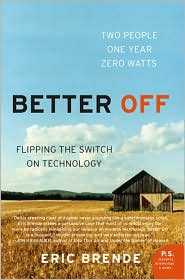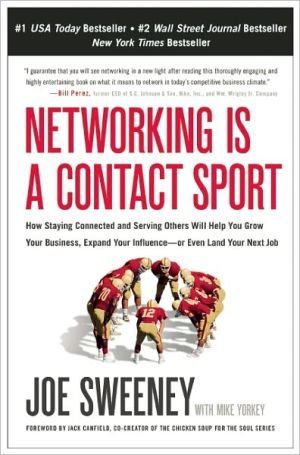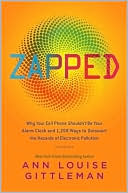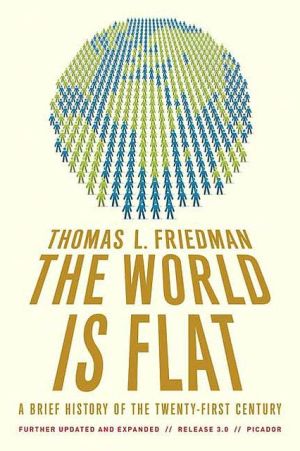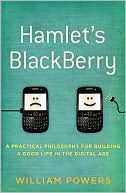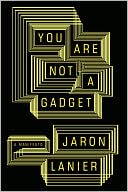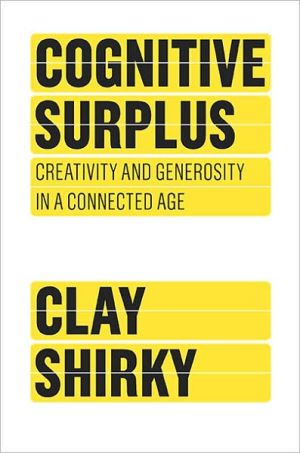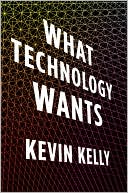Better Off: Flipping the Switch on Technology
What happens when a graduate of MIT, the bastion of technological advancement, and his bride move to a community so primitive in its technology that even Amish groups consider it antiquated? Eric Brende conceives a real-life experiment: to see if, in fact, all our cell phones, wide-screen TVs, and SUVs have made life easier and better -- or whether life would be preferable without them. By turns, the query narrows down to a single question: What is the least we need to achieve the most? With...
Search in google:
The author and his spouse spent 18 months in Amish country living without electricity and its dependent technologies. Here he recounts the experience, not only detailing the daily activities and frequent difficulties they found necessary to maintain existence without electricity, but also touting the benefits of such a life and exploring the culture of their adopted community. Annotation ©2004 Book News, Inc., Portland, OR Publishers Weekly About a decade ago, Brende was pursuing a graduate degree at MIT by studying technology's influence on society, and he reached conclusions that disturbed both him and his faculty mentors. A chance encounter with a "black-hatted man" prompted Brende and his new wife to move to a religious, "Mennonite-type" community that in many respects makes the Amish seem worldly, where he hoped to pare his environment down to "a baseline of minimal machinery" that could sustain human comfort while allowing him to stay off the power grid. (Details about the community, which Brende dubs the "Minimites" in recognition of their austerity, are left intentionally vague so as to preserve their privacy.) The pervasive back-to-basics sentiment will surprise few familiar with others who work this vein, like Bill McKibben and Kirkpatrick Sale, but Brende's nostalgia for a simpler way of life is far from rabid. His rough prose honestly addresses how neighbors in his new community could graciously offer help yet warily view Brende as an intruder; Brende himself was particularly sensitive to perceived slights, and the radical lifestyle shift created a unique set of strains on his new marriage. Though the ending feels a bit rushed, his gentle case for simple living will easily resonate with the converted and may inspire skeptics to grapple more intimately with the issue. Agent, John Ware. (Aug. 6) Copyright 2004 Reed Business Information.
Better Off\ Chapter One Seeds of Discontent\ I used to be as optimistic as anyone about technology. Once asked in grade school to draw a picture of what my home would look like when I grew up, I sketched, in crayon, a transparent hemisphere resting on a single pole and a little flying saucer containing me, my wife, and our many kids about to dock at it. There were exactly eight little heads (besides mine and my wife's) peeking over the rim of the craft, all identical and propagated with the help of a fertility drug.\ When I reached my early teens, I never failed to watch an episode of Star Trek, and I read almost every piece of science fiction Isaac Asimov wrote. On our family's first cross-country trip, I became ecstatic when we got caught in a traffic jam on the Oakland Bay Bridge. To a midwestern boy, traffic jams were exotic events in which only special people living in modernistic cities took part.\ There was always an undertow to my technological infatuation, however, which at first I was loath to acknowledge. On that trip out west, I spent most of the time carsick. A few years later, after returning to the lazy metropolis of Topeka, Kansas, I began to notice anomalies in the mechanical utopia of our modernized household. After we got an automatic dishwasher, the size of the pile of dirty plates on the countertop didn't decrease at all. If anything, it increased. My dad bought one of the first word processors ever made in the hopes of easing the time and effort of writing. He spent so much time with that machine, I almost never saw him again.\ In my grade-school years, the neighborhood seemed alive with children out in the street playing stickball and hide-and-seek. But the older I grew, the more deserted the street became — except for the cars, of course, which had multiplied over time and made playing out-of-doors more perilous. After supper even the cars went into hibernation; the only signs of life were the faint glows cast by cathode ray tubes on living-room blinds.\ I had always been on the bashful side, so I went more or less the way of the trend, retreating as determinedly as everyone else to the altar of TV. But lest I surrender utterly to The Void, I applied myself diligently at the piano, practicing several hours a day. To survive socially in a place dominated by the automobile, of course, you had to drive; so I also made an attempt to earn money to buy a car by working at McDonald's. But soon I saw the futility and the irony: in a town whose borders motor vehicles had pushed to the horizons (with a population of 120,000, Topeka covered 50 square miles), the only sensible way to get to my job was by automobile. Until I could afford one, I had to bike the six-mile round trip on busy roads with no shoulders or sidewalks, and I arrived dripping wet. Had I stayed on, I calculated that, like the other workers, I would be working mostly in order to pay for my transportation to work.\ What had begun as car sickness in boyhood had developed, by adolescence, into a deeper case of cultural indigestion. It was only when I got to college that I began the attempt to put a name to this, but already the symptoms of the malady — burdensome material inconvenience and social isolation — had become too acute to ignore.\ Luckily, my musical diligence paid off, and I got into a good university. There it was exciting to meet other people of similar interests who lived within walking distance. I threw out the sheet music and threw myself into the life of the campus. I joined debating groups. I took up rowing. I made new friends. I dabbled in religion. And in my academic pursuits, I tried to gain some understanding of what was going wrong in Oz.\ On a hunch, I signed up for a course in the history of technology. It was an eye-opener. The young professor, Eda Kranakis, capably surveyed the development of wind- and water mills, steam engines, and railroads, and tossed in a graphic description of the inhuman working conditions in nineteenth century factories. She related the tragic tale of the British land enclosure movement, inspired by "scientific farming," which uprooted countless laborers from their hereditary commons in the country and flung them into the cities, where they formed an easily exploited labor pool.\ As illuminating as the class was, though, it raised more questions than it answered. Hadn't American society moved beyond the barbarities of Dickensian England (or at least hadn't it subcontracted the dirty work to countries like Mexico)? What was technology's role in the present age? Problems hadn't disappeared; they were just different. But the exponents of public policy remained about as starry-eyed as I had been in grade school. Even the leaders of my elite university accorded every latest gizmo a virtual hero's welcome. Appalled by this mindlessness, I engaged in many heated discussions with classmates. And I wrote an extended research paper for Kranakis, describing the unhealthy side effects associated with sedentary stress and the use of ordinary automated devices. Kranakis liked the paper and encouraged me to develop my ideas.\ The conviction was growing in me that the besetting problem was our culture's blindness to the distinction between the tool and the automatic machine. Everyone tended to treat them alike, as neutral agents of human intention. But machines clearly were not neutral or inert objects. They were complex fuel-consuming entities with certain definite proclivities and needs. Besides often depriving their users of skills and physical exercise, they created new and artificial demands — for fuel, space, money, and time. These in turn crowded out other important human pursuits, like involvement in family and community, or even the process of thinking itself. The very act of accepting the machine was becoming automatic ...\ Better Off\ . Copyright © by Eric Brende. Reprinted by permission of HarperCollins Publishers, Inc. All rights reserved. Available now wherever books are sold.
Cast of NeighborsxiiiPrologue: Taking Orders1Section IPlanting31Seeds of Discontent52Paring Back163Lightening Up304Artfully Answering Nature395The Ram466The Missing Refrigerator607The Sounds of Silence65Section IIGrowing718Quickening739A Church Meeting7910A Barn Raising9011The Dating Game10312Meet the Neighbors10813Secrets and Politics13214Heatstroke13815Weighing the Work153Section IIIHarvesting16916As the Pumpkins Turn17117After the Fall: Even Farmers Get the Blues17918Birth18819Husbandry19620Pulling in the Reins20221Closing Time21522Outside, and the Box219Epilogue: Recipe for a Leisurely, Laborsaving Life227
\ Publishers WeeklyAbout a decade ago, Brende was pursuing a graduate degree at MIT by studying technology's influence on society, and he reached conclusions that disturbed both him and his faculty mentors. A chance encounter with a "black-hatted man" prompted Brende and his new wife to move to a religious, "Mennonite-type" community that in many respects makes the Amish seem worldly, where he hoped to pare his environment down to "a baseline of minimal machinery" that could sustain human comfort while allowing him to stay off the power grid. (Details about the community, which Brende dubs the "Minimites" in recognition of their austerity, are left intentionally vague so as to preserve their privacy.) The pervasive back-to-basics sentiment will surprise few familiar with others who work this vein, like Bill McKibben and Kirkpatrick Sale, but Brende's nostalgia for a simpler way of life is far from rabid. His rough prose honestly addresses how neighbors in his new community could graciously offer help yet warily view Brende as an intruder; Brende himself was particularly sensitive to perceived slights, and the radical lifestyle shift created a unique set of strains on his new marriage. Though the ending feels a bit rushed, his gentle case for simple living will easily resonate with the converted and may inspire skeptics to grapple more intimately with the issue. Agent, John Ware. (Aug. 6) Copyright 2004 Reed Business Information.\ \ \ \ \ Library JournalAs a graduate student at MIT, Brende found himself disenchanted with the stresses of technology and pondered whether there was some baseline minimal machinery needed for human convenience and comfort. He determined that a real-life experiment was needed (which would be the basis of his master's thesis). With his wife, Brende moved to a mixed community of Amish, Mennonites, and outsiders, whom he dubbed "Minimites" for their predilection to gain a maximum of ends with a minimum of technological means, leaving behind electricity, plumbing, and everything else "hooked on the grid," for 18 months. The Minimites taught the couple, among other things, how to plant crops, drive a horse-drawn buggy, preserve their own food, and create a "natural air conditioner." The Brendes, in turn, found that their stress levels dropped and their lives were more enjoyable. While the narrative is not always engaging, Brende's lofty and humbling endeavor raises some interesting questions. Buy wherever interest is high for "getting off the grid and living off the land" titles. [Previewed in Prepub Alert, LJ 4/15/04; see Q&A with author above.-Ed.]-Eva Lautemann, Georgia Perimeter Coll. Lib., Clarkston Copyright 2004 Reed Business Information.\ \ \ School Library JournalAdult/High School-An undergraduate course in the history of technology led Brende to enroll in a graduate program at M.I.T. that contemplated the social effects of machines on human life. He then decided to test his idea that the more advanced the machine, the bigger the downside, by moving to the country to farm and live cheaply without electricity for 18 months. This is not a back-to-the-land book on how to dig a root cellar; rather, it's the Brendes' experiences on the farm they rented. He and his wife soon discovered a natural rhythm to their lives that had been missing in Boston and that they both found deeply satisfying. It seemed as if they'd stay permanently, but when they got rid of the car in favor of a horse and buggy, it turned out that Brende's wife was allergic to horses. By this time, the experiment had confirmed the author's thinking about the harm technology does to humans and society and that machines are becoming our masters. His curiosity about how much he could transfer of what he had learned to the "outside" world, plus his wife's allergy, led them to move to another undisclosed location-a small town outside a Midwestern city-where they were able to live simply, albeit with electricity, and survive, even thrive, on odd jobs, bartering, and soap-making. Brende's close look at technology's generally unnoticed harmful effects is a welcome relief from the usual how-to-get-ahead-in-the-rat-race attitude. Thoughtful teens will find much to contemplate here.-Judy McAloon, Potomac Library, Prince William County, VA Copyright 2004 Reed Business Information.\ \
